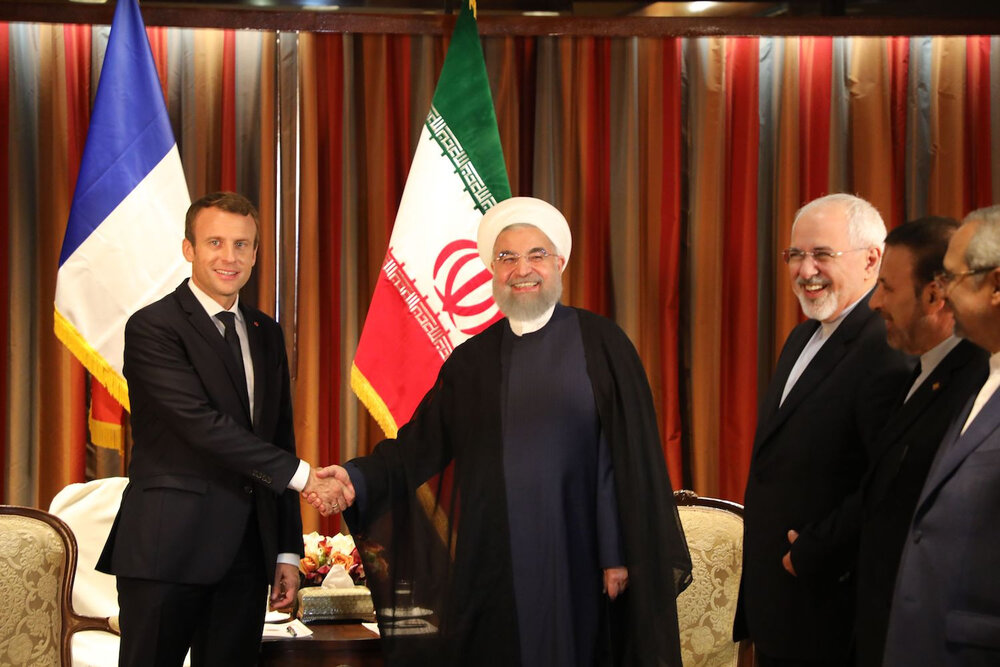Europe to keep nuclear deal on life support until November election: Foreign Policy

TEHRAN – In a commentary on Tuesday, Foreign Policy said the Europeans remain committed to keeping the 2015 nuclear deal, known as the JCPOA, on life support at least until the United States’ presidential election in November.
The magazine said the U.S. lost the showdown at the United Nations Security Council over extending the terms of the arms embargo against Iran and seeks to trigger the snapback mechanism.
The global magazine of news and ideas said the response from the remaining parties to the nuclear deal will be critical.
Following is an excerpt of the article:
The United States just lost the showdown at the United Nations Security Council over extending the terms of the arms embargo against Iran. The U.S. government was left embarrassingly isolated, winning just one other vote for its proposed resolution (from the Dominican Republic), while Russia and China voted against and 11 other nations abstained.
But the Trump administration is not deterred: In response to the vote, President Donald Trump threatened that “we’ll be doing a snapback”—a reference to reimposing sanctions suspended under the 2015 nuclear deal from which the United States withdrew in 2018.
The dance around the arms embargo has always been a prelude to the bigger goal: burning down the remaining bridges that could lead back to the 2015 deal. The Trump administration now seeks to snap back international sanctions using a measure built into the very nuclear agreement the Trump White House withdrew from two years ago. This latest gambit by the Trump administration is unsurprisingly contested by other world powers.
On the one hand, Russia and China are making a technical, legal argument against the U.S. move.
Seizing on its failure to extend the arms embargo, the United States now claims it can start the clock on a 30-day notification period, after which UN sanctions removed against Iran by the nuclear deal are reinstated. This notification will be timed deliberately to end before October—when the arms embargo is set to expire, and also when Russia takes over presidency of the UN Security Council: a time when Washington could face more procedural hurdles.
What is likely to follow snapback is a messy scene at the UN in which council members will broadly fall into three groups.
First, the United States will seek to build support for its case—primarily through political and economic pressure—so that by the end of the 30-day notice period some UN member states agree to implement sanctions. The Trump administration will likely use the threat of U.S. secondary sanctions, as it has done successfully over the last 18 months, if governments don’t move to enforce snapback sanctions.
Even if most governments around the world disagree that the United States has any authority to impose snapback sanctions, some countries may be forced to side with Washington given the threat that the United States could turn its economic pressure against them.
The second group will be led by China and Russia, both of which have already started to push back. Not only will this group refuse to implement the UN sanctions that the U.S. government claims should be reimposed, but they likely will throw obstacles into the mix, such as blocking the reinstitution of appropriate UN committees that will oversee the implementation of such sanctions. This group may also see it as advantageous to seek a determination by the International Court of Justice on the legal question over the U.S. claim.
The third grouping will be led by the France, Britain, and Germany, who remain united in the belief that the deal should be preserved to the greatest extent possible. In a statement in June, the three governments already emphasized that they would not support unilateral snapback by the United States. But it is unclear if this will translate into active opposition—and their approach will certainly not include the obstructionist moves that Russia and China may make.
This bloc will look to stall decisions to take the steps necessary to implement the UN sanctions. This is a delicate undertaking, as European countries are not in the habit of blatantly ignoring the binding framework of some of the UN’s directives, and will want to balance their actions against the risk of eroding the Security Council’s credibility further. But they will also take advantage of whatever procedural avenues are in place to delay full enforcement of the sanctions, buying time to urge Iranian restraint in response to the U.S. moves.
Until now, the remaining parties to the nuclear deal have managed to preserve the deal’s architecture despite its hollowing out. The aim has been to stumble along until the U.S. election to see if a new opening is possible to resuscitate the agreement with a possible Biden administration in January.
NA/PA
